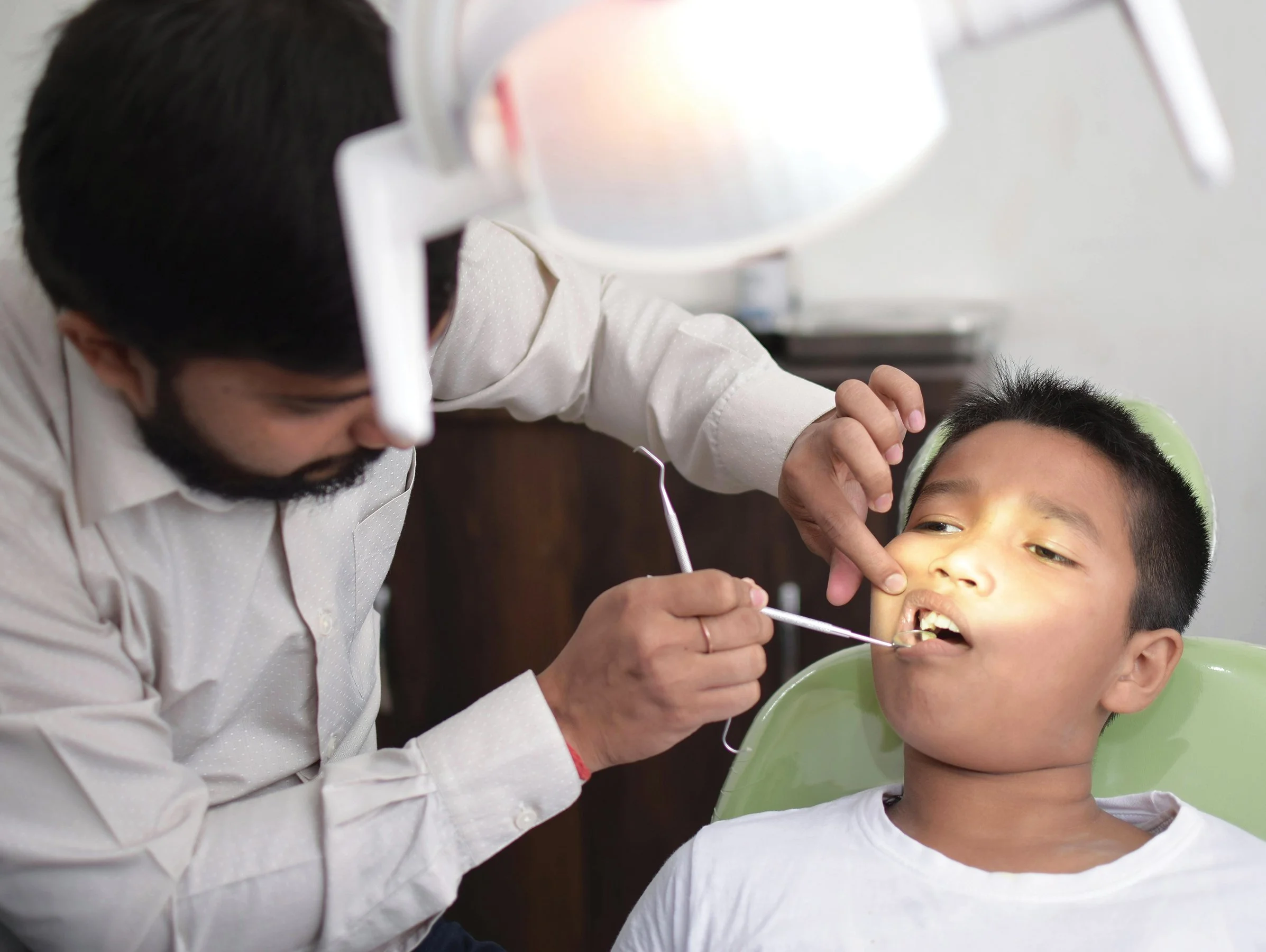HEALTH FILE
OPEN WIDE AND SAY AAH!
Poor health of the mouth impacts the rest of the body Image credit: LAKHINANDAN BORAH on Unsplash.
By AAMINAH NAJMUS SAHAR
Oral health may seem like a tiny part of the puzzle, but it has a huge impact on overall health and well-being.
The mouth is the beginning of the digestive tract that extends through the body, it is the entry point for nutrition and oxygen. Thus, poor health of the mouth impacts the rest of the body.
The mouth contains about six million bacteria, most of which are harmless and are controlled by the body’s defence mechanisms as long as good oral hygiene is maintained. In cases of poor oral hygiene, these bacteria may multiply, spread, and flow into the bloodstream and reach various vital organs. The main indicators of poor oral hygiene include bad breath, cavities, tooth sensitivity, gum diseases like bleeding or swollen gums, discoloured or stained teeth, dry mouth, persistent toothaches, and plaque buildup.
If oral health is not maintained, it may lead to several other health disorders.
Poor oral health, especially periodontitis (gum infection), can lead to development and worsening of Type 2 Diabetes Mellitus. The inflammation associated with gum disease can enter the blood stream and cause systemic inflammation, thereby reducing insulin sensitivity and leading to higher blood glucose levels i.e. worsening of diabetes.
On the other hand, high blood glucose levels can also cause gum disease. Diabetes and gum disease are interlinked and treatment of gum disease is associated with reduction in blood glucose levels, reduction in HbA1c levels, and better control of Type 2 diabetes. The systemic inflammation that enters the blood stream from the gums can then lead to various systemic diseases like rheumatoid arthritis, Alzheimer’s’ disease, dementia, digestive and gut issues, and pregnancy and birth complications (periodontitis has been linked to premature birth and low birth weight), etc.
If cavities are not treated in time, they may lead to an infection of gums and the bacteria from gums may enter blood stream and reach vital organs. This may lead to endocarditis (a serious infection of the endocardium – heart’s inner lining and heart valves), cardiovascular diseases, respiratory diseases, and stroke.
Poor oral health and chronic inflammation could also lead to the development of mouth cancer and other cancers. In addition, having higher levels of bacteria in the mouth, losing more of natural teeth, and experiencing gum disease can all increase the risk of glaucoma. There are some conditions that can worsen oral health as well. Sjogren’s syndrome causes dry mouth, cancers and HIV AIDS cause painful mucosal ulcers and lesions (sores) in the mouth, Alzheimer’s disease and dementia – as the disease advances oral health is neglected.
In addition to the above-mentioned systemic diseases, oral health also affects various aspects of life, thereby impacting well-being. Symptoms like bad breath, stained or crooked teeth, gum disease, loss of teeth, etc., can impact one’s confidence and social life. Several individuals with these symptoms become extremely self-conscious, and this impacts their ability to speak in a social setting, smile, or have conversations. This greatly impacts the confidence of individuals and leads to low self-esteem. In some cases, oral diseases can also lead to mental health conditions like depression and anxiety. Oral diseases, pain, and infections significantly influence daily life, making it difficult to eat, speak, and perform daily tasks. Untreated oral diseases can also lead to missing school or work, difficulty concentrating, and a lack of productivity.
The first step in maintaining good oral health is brushing of teeth twice daily and regular flossing. Tongue should be cleaned regularly and toothbrush should be replaced every three to four months. In addition to this, professional dental cleaning should be done once every year. Regular dental checkups are crucial as they help in the early detection of oral diseases, thereby preventing the worsening of diseases and maintaining good oral health.
A good well-balanced diet and limiting sugary foods and beverages can help prevent tooth cavities, decay, and gum diseases. Quitting tobacco use in all forms (paan, shisha, bidi, cigarettes, vaping, etc.) helps in maintaining good oral health and prevents gum disease. Extra caution is required if you have the risk factors for poor oral health i.e. young children or older age, systemic diseases like diabetes, etc., habits like smoking, alcohol consumption, diet rich in processed food and sugary food and drinks, etc.
By taking care of oral health with self care and professional help as required we can ensure optimal oral health which leads to optimal overall health and well-being.
Aaminah Najmus Sahar is a medical writer and reviewer with a Pharm.D. In her blog Medscetera, she posts about healthcare topics. She is passionate about helping people make informed health choices.


